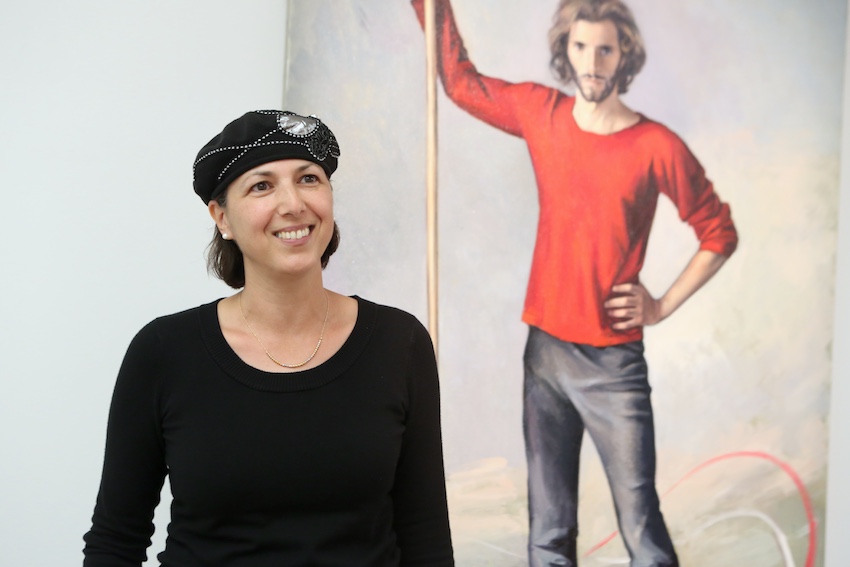Precision dosing invention gets drugs just to affected cells and not whole body; already tested on mice with inhibitor drugs; inventors also aiming at chemo and other treatments.
By NATHAN JEFFAY (Nathan Jeffay is The Times of Israel’s health and science correspondent)
Scientists say that new Israeli technology could dramatically reduce the side effects of cancer treatments, including chemotherapy, by making precision dosing possible for drugs that are currently administered to the whole body.
The invention could also revive numerous treatments that are today considered unsafe and enable doctors to increase doses of some existing medicines, the team from the Technion-Israel Institute of Technology suggests in newly peer-reviewed research.
The main focus of the study – and the sole topic of the Technion team’s animal study – is inhibitors, which are drugs that block the growth factors that trigger cancer cells. But a small number of chemotherapies was included in the lab testing and showed promise, the team said, indicating that the technology may also one day be used to reduce chemotherapy side effects.
Precision medicines are considered a promising way to treat cancer, but a major challenge is the technology required to deliver medicine to cancerous cells without taking it to other parts of the body.
Particles called nano-carriers — also a key ingredient of most coronavirus vaccines — do the job well. But each nano-carrier is compatible with a limited range of drugs, and only a few dozen are available, meaning the vast majority of drugs can’t be given as precision medicine.
A Technion biomedical engineering team says it has invented a new nano-carrier, tested it in lab conditions and on mice, and concluded it is likely to make nano-dosing possible for many drugs.
“The new nano-carrier actually enabled us to successfully treat mice with a medicine that normally can’t be used due to its intense side effects,” Prof. Yosi Shamay, head of the lab that conducted the research, told The Times of Israel.
His team gave mice Trametinib, a drug that can only be used today for melanoma patients and in tiny doses due to its toxicity. The mice received what is considered a safe dose. Mice who received it as a regular drug didn’t get better, while those who received it through targeted nano-carrier delivery ended up with smaller tumors.
Shamay commented: “This nano-carrier could enable us to use potentially-lifesaving drugs that simply haven’t been viable because side effects for the necessary dose are too intense. This is exciting. Indications from lab testing are that it will work with many drugs and on a wide range of cancers.”
“What is more, this could make existing drugs more effective. As we need to limit doses of some drugs today because of side effects, precision delivery that eliminates concerns of side effects can enable bigger and therefore more effective doses,” he said.
Shamay’s lab invented the particle using an unusual process. It built a robot and programmed it to test different combinations of materials after uniting them through different chemical reactions.
“By taking a big step in robotic chemistry, we’ve opened up new opportunities for drugs,” Shamay explained.
“As of now, most drugs have to be administered as regular oral or injected medicines, which means they end up across the whole body. If this happens 99% of the drug goes to healthy cells and less than 1% goes to the tumor.
“This new material enables us to deliver drugs very precisely to solid tumors. Side effects that result from the drug ending up elsewhere in the body can be significantly reduced.
“And if you can reduce side effects you can also increase doses — as doses are often determined to limit side effects — you can increase the performance of a drug,” he said.
Shamay said that initial testing of the nano-carrier’s ability to keep its payload — namely the drug that is being tested — safe and in stable form was possible using a light-based method. If the drug is stable, then when light is shone on it, it emits almost no light.
He carried out this lab testing process on 30 drugs – mostly inhibitors with a small number of chemotherapy treatments. All were stable in the nano-carrier, which Shamay said suggests that the nano-carrier will work with many drugs. He is aiming to conduct further testing and secure regulatory approval, initially for inhibitors and possibly for chemotherapies down the line.
Shamay said: “If everything goes well, in five years we will have patients being administered with our material. This could have a very positive effect on cancer treatment.”
Posted originally at the Times of Israel on Sept 30, 2022


